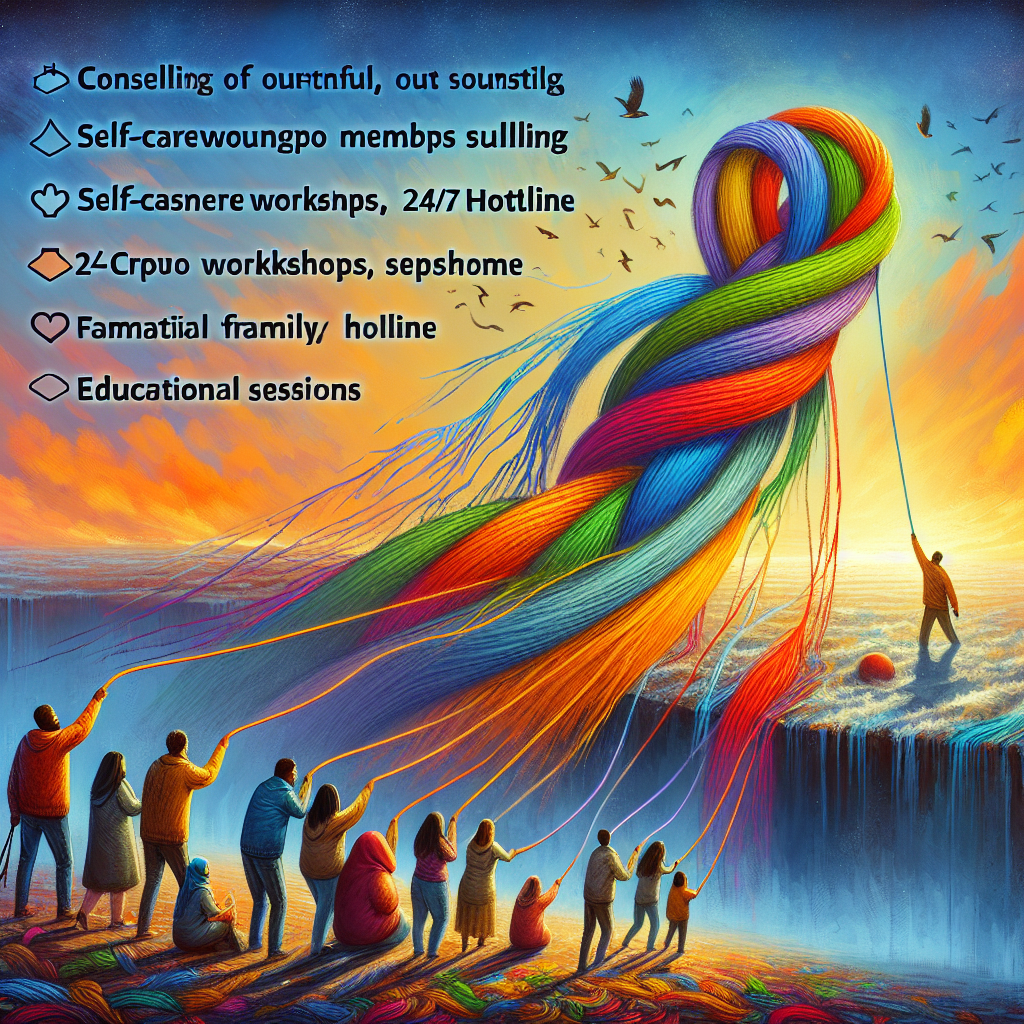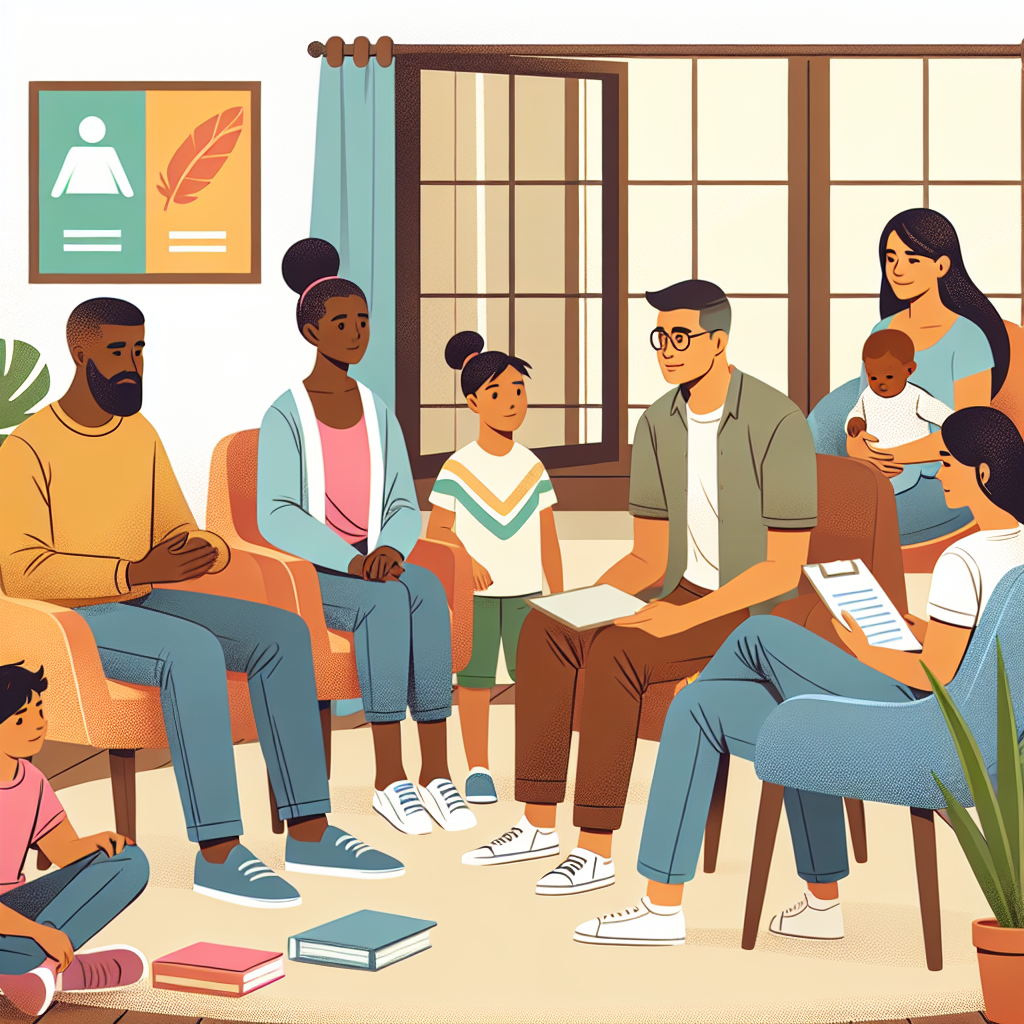-
Table of Contents

“Empowering Families, Healing Together.”
Introduction
Addiction recovery services play a crucial role not only in helping individuals overcome substance abuse but also in supporting their family members who are often deeply affected by their loved one’s addiction. These services provide a comprehensive approach that includes education, counseling, and support groups specifically designed for family members. By offering these resources, addiction recovery services help families understand the nature of addiction, develop healthy coping mechanisms, and rebuild trust and communication within the family unit. This holistic support system is essential for fostering a stable and nurturing environment that can significantly enhance the recovery process for the individual struggling with addiction, while also promoting the well-being of the entire family.
Understanding the Role of Family Therapy in Addiction Recovery Services
Addiction recovery services play a crucial role not only in the lives of those struggling with substance abuse but also in the lives of their family members. Understanding the role of family therapy in addiction recovery services is essential to grasp the comprehensive approach these services take to foster healing and long-term recovery. Family therapy is a cornerstone of many addiction recovery programs, recognizing that addiction is a disease that affects the entire family unit, not just the individual.
One of the primary ways family therapy supports family members is by providing a safe space for open communication. Addiction often leads to strained relationships, mistrust, and emotional turmoil within families. Through guided sessions with a trained therapist, family members can express their feelings, share their experiences, and begin to rebuild trust. This open dialogue is crucial for healing, as it allows family members to understand the complexities of addiction and the impact it has had on their lives.
Moreover, family therapy educates family members about the nature of addiction. Many people hold misconceptions about addiction, viewing it as a moral failing or a lack of willpower. By providing accurate information and dispelling myths, family therapy helps family members develop a more compassionate and supportive attitude towards their loved one. This shift in perspective is vital for creating a supportive environment that encourages recovery.
In addition to fostering understanding, family therapy equips family members with practical tools and strategies to support their loved one’s recovery journey. Therapists often teach communication skills, conflict resolution techniques, and coping mechanisms that can be used in everyday interactions. These skills are invaluable in reducing stress and preventing relapse, as they help family members navigate the challenges that come with supporting someone in recovery.
Furthermore, family therapy addresses the emotional and psychological needs of family members. Living with someone who has an addiction can be incredibly stressful and can lead to feelings of guilt, anger, and helplessness. Family therapy provides a space for family members to process these emotions and receive support from both the therapist and other family members. This emotional support is crucial for the well-being of the entire family, as it helps them to heal and move forward together.
Another significant aspect of family therapy is its focus on rebuilding and strengthening family bonds. Addiction can create rifts in relationships, leading to isolation and disconnection. Through therapeutic interventions, families can work on repairing these bonds and developing healthier, more supportive relationships. This process often involves setting boundaries, improving communication, and fostering mutual respect and understanding.
Family therapy also emphasizes the importance of self-care for family members. Supporting someone in recovery can be demanding, and it is essential for family members to take care of their own physical and emotional health. Therapists often encourage family members to engage in activities that bring them joy and relaxation, seek support from friends or support groups, and prioritize their well-being. By taking care of themselves, family members are better equipped to provide the support their loved one needs.
In conclusion, family therapy is a vital component of addiction recovery services, offering comprehensive support to family members. By fostering open communication, providing education, equipping families with practical tools, addressing emotional needs, rebuilding relationships, and emphasizing self-care, family therapy helps families heal and grow together. This holistic approach not only supports the individual in recovery but also strengthens the entire family unit, paving the way for a healthier, more connected future.
How Support Groups for Families Enhance Addiction Recovery Outcomes
Addiction recovery is a journey that extends beyond the individual struggling with substance abuse; it profoundly impacts their family members as well. Recognizing this, addiction recovery services have increasingly focused on providing support not only to those directly battling addiction but also to their families. One of the most effective ways these services enhance recovery outcomes is through support groups specifically designed for family members. These groups offer a sanctuary where families can find solace, share experiences, and gain valuable insights, ultimately fostering a more supportive environment for the individual in recovery.
Support groups for families play a crucial role in demystifying the complexities of addiction. Often, family members grapple with feelings of confusion, guilt, and helplessness, unsure of how to best support their loved one. By participating in these groups, they gain a better understanding of addiction as a chronic disease rather than a moral failing. This shift in perspective is instrumental in reducing stigma and fostering empathy, which are essential components of a supportive home environment.
Moreover, these groups provide a platform for family members to share their experiences and challenges. This communal sharing can be incredibly therapeutic, as it helps individuals realize they are not alone in their struggles. Hearing stories from others who have faced similar situations can offer new coping strategies and a sense of hope. This collective wisdom can be a powerful tool in navigating the often tumultuous journey of supporting a loved one through recovery.
In addition to emotional support, family support groups often provide practical advice and resources. Facilitators, who are usually trained professionals or individuals with lived experience, can offer guidance on setting healthy boundaries, effective communication strategies, and self-care practices. These skills are vital for maintaining a balanced and healthy family dynamic, which in turn supports the recovery process. For instance, learning how to set boundaries can help family members avoid enabling behaviors, while effective communication can reduce conflicts and misunderstandings.
Furthermore, support groups can serve as a bridge to other resources and services. Facilitators often have extensive knowledge of local and national resources, such as counseling services, educational workshops, and legal assistance. By connecting families with these additional supports, the groups help create a comprehensive network of care that addresses the multifaceted challenges of addiction recovery.
The benefits of family support groups extend beyond the immediate family unit. They can also positively impact the broader community by fostering a culture of understanding and compassion. As families become more educated and empowered, they are better equipped to advocate for their loved ones and contribute to broader efforts aimed at reducing the stigma associated with addiction. This ripple effect can lead to more inclusive and supportive communities, which are essential for sustainable recovery.
In conclusion, support groups for families are an invaluable component of addiction recovery services. They provide a safe space for emotional expression, practical advice, and resource sharing, all of which are crucial for creating a supportive environment for individuals in recovery. By empowering family members with knowledge, skills, and a sense of community, these groups enhance recovery outcomes and contribute to the overall well-being of both the individual and their family. The journey of addiction recovery is undoubtedly challenging, but with the right support, it becomes a shared path of healing and growth.
Q&A
1. Addiction recovery services often provide family therapy sessions to help family members understand the nature of addiction, improve communication, and rebuild trust within the family unit.
2. These services may also offer educational workshops and support groups specifically for family members, providing them with coping strategies, emotional support, and resources to better support their loved one in recovery.
Conclusion
Addiction recovery services support family members by providing education about addiction, offering counseling and therapy to address emotional and psychological impacts, facilitating support groups for shared experiences and mutual encouragement, and teaching coping strategies to manage stress and improve communication. These services aim to foster a healthier family dynamic, promote understanding, and enhance the overall recovery process for both the individual struggling with addiction and their loved ones.



